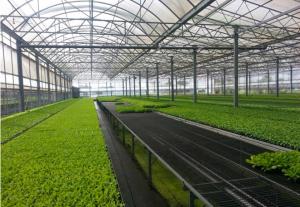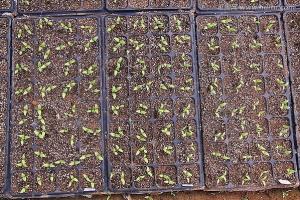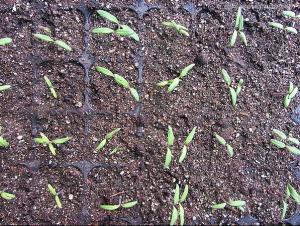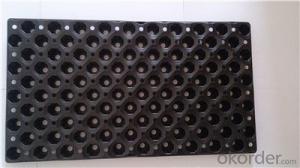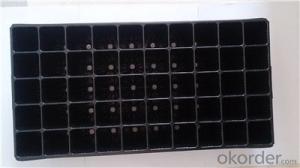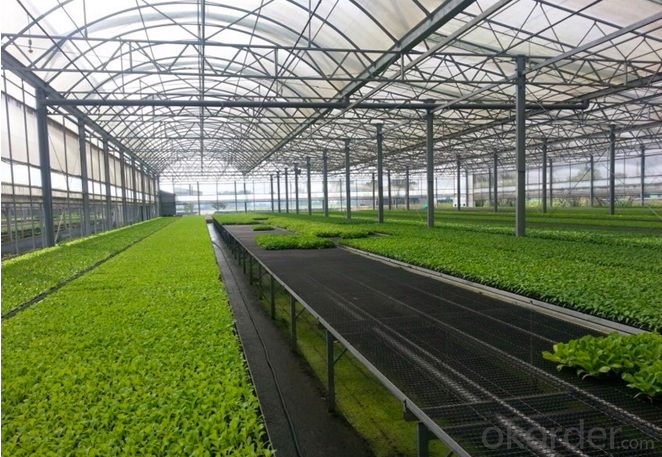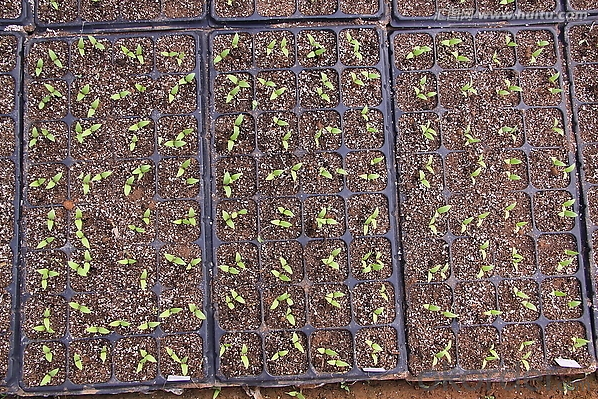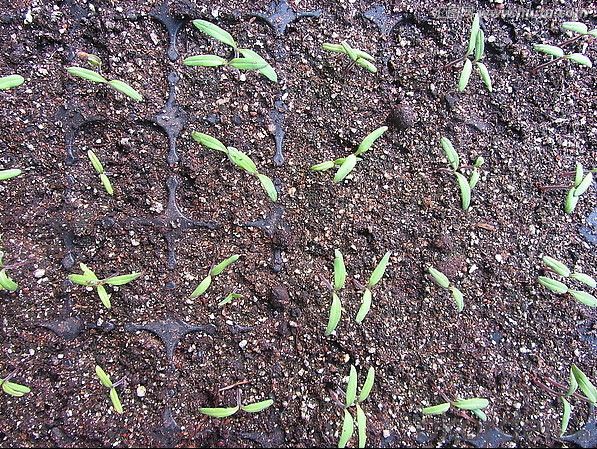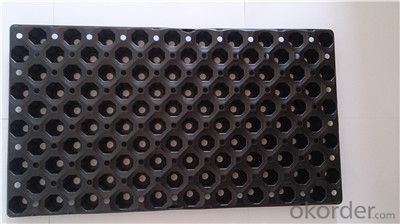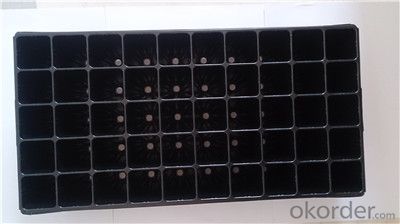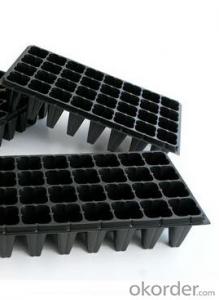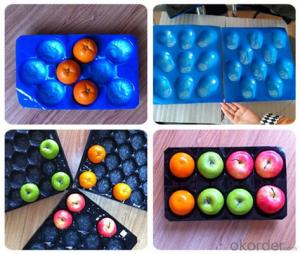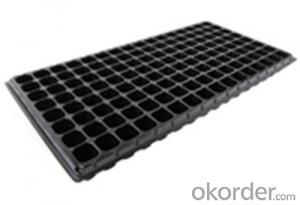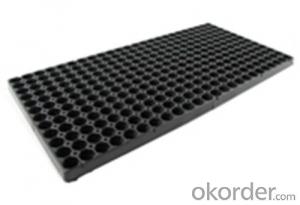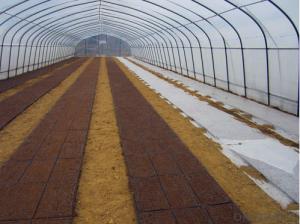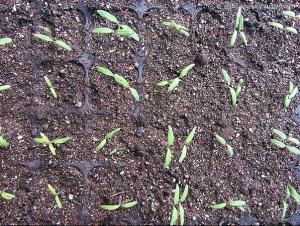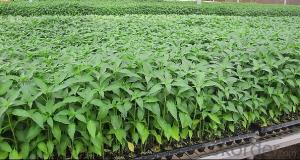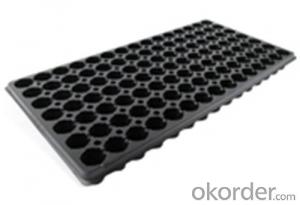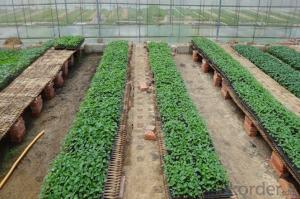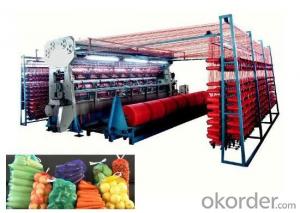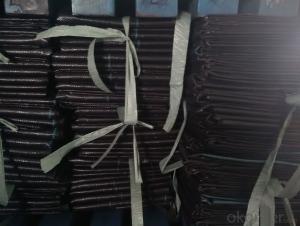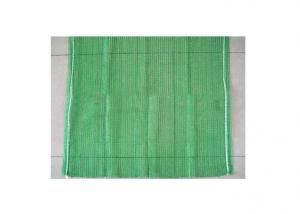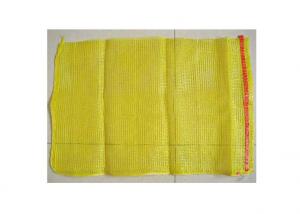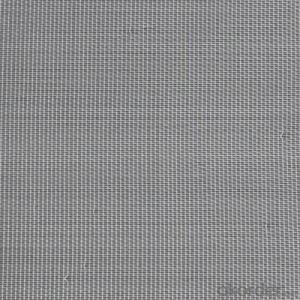Plastic Seedling tray / Nursery tray / Seed tray
- Loading Port:
- China main port
- Payment Terms:
- TT or LC
- Min Order Qty:
- 1000 pc
- Supply Capability:
- 10000000 pc/month
OKorder Service Pledge
OKorder Financial Service
You Might Also Like
Description Main Features of the seed tray:
· Ideal for Starting seeds and Transplanting Seedling.
· Suitable for both manual and automatic planting.
· Suitable for Propagating Vegetables, Flowers and other plant from seed in green-house or indoors.
Specification:
Material: HIPS/PVC
Thickness: 0.5mm-1.5mm, Standard:1mm
Weight: 80g(±5)g-230g(±5)g, Standard weight:155g(±5)g
Size: length:490mm-540mm, width:190mm-345mm,depth:25mm-150mm
Standard:54mmX28mm
Cell count: 18-512
Package: carton
Thickness vs. Weight
· Thickness of trays are from 0.5mm to 1.0mm.
· 1.0mm: 155g±5g; 100pcs/ctn.
· 0.9mm: 140g±5g; 120pcs/ctn.
· 0.7mm: 110g±5g; 150pcs/ctn.
· 0.6mm: 95g±5g; 180pcs/ctn.
· 0.5mm: 80g±5g; 200pcs/ctn.
·
Using time:
· thickness of 0.5mm can be used 1 to 2 times.
· thickness of 0.6mm can be used 3 to 4 times.
· thickness of 0.7mm can be used 5 to 6 times.
· thickness of 0.8mm can be used 7 to 8 times.
· thickness of 0.9mm can be used 8 to 9 times.
· thickness of 1.0mm can be used 8 to 10 times.
Structure of the seed tray:
· Top quality and competitive price.
· Variety design and good appearance.
· Easy to use, and remove.
· Durable and reusable.
· Eco-Friendly.
Seed Tray Specification:
Material | ps/pvc |
Thickness | 0.5mm-1.5mm, standard:1mm |
Weight | 80g(±5)g-230g(±5)g, Standard weight:155g(±5)g |
Size | length:490mm-540mm, width:190mm-345mm,depth:25mm-150mm Standard:54mmX28mm |
Cell count | 18-512 |
Package | in carton |
Using time | 8-10 times |
FAQ:
Q:How Can I Get A Sample?
A:You can get samples by communicate with our export sales.
Q:How Long Is Delivery?
A:Delivery time will be 7-25 days according to order quantity.
Q:What Is The MOQ?
A:Our MOQ is 1*20FT container quantity, allow to mix several items.
Q:What Is Our Normal Payments Terms?
A:Our normal payment terms now is T/T, L/C or Western Union,Papal.
Q:How Do I Order Your Products?
A:You can check our website for any items you interest and you can also get communication with our export sales and order for it accordingly.
Q:What Kinds Of Material We Use In Our Product?
A:Our plastic flower pots use material such as PP polymer or PE polymer.
- Q: okay so when i go to collage i want to become a plastic surgeon for kids that have burns. but how much does it pay?
- The pay of plastic surgeon is according to the rank. It also varies with the different hospitals.
- Q: What are the potential environmental impacts of agricultural plastic products?
- The potential environmental impacts of agricultural plastic products include pollution through improper disposal, particularly in water bodies, soil contamination due to leaching of chemicals from plastic, and negative effects on wildlife through entanglement or ingestion of plastic debris. Additionally, the production of agricultural plastics contributes to greenhouse gas emissions and the depletion of non-renewable resources.
- Q: How many times can a nursery tray be reused?
- A nursery tray can typically be reused multiple times, depending on its condition and quality.
- Q: Explain how the use of agricultural plastic products can lead to a reduction in the application of pesticides and fertilizers.
- <p>Agricultural plastic products, such as mulch films and greenhouses, can reduce the use of pesticides and fertilizers by creating a controlled environment that minimizes the need for these chemicals. Mulch films can suppress weed growth, reducing the need for herbicides. They also help retain soil moisture, reducing water loss and the need for additional irrigation, which in turn can decrease the leaching of fertilizers. Greenhouses can protect crops from pests and diseases, reducing the need for pesticides. Additionally, they allow for precise control of nutrient application, leading to more efficient use of fertilizers and less runoff. Overall, these plastic products can enhance crop yields while reducing chemical inputs, promoting sustainable agriculture.</p>
- Q: Can the use of biodegradable mulch help in minimizing soil erosion and enhancing water efficiency in arid agricultural practices?
- <p>Yes, biodegradable mulch can be effectively used to reduce soil erosion and improve water usage in dryland farming. Mulch acts as a protective barrier that minimizes the impact of raindrops on the soil, reducing the detachment and transport of soil particles, thereby decreasing erosion. Additionally, mulch helps to retain soil moisture by reducing evaporation, allowing water to be used more efficiently by plants. As the mulch decomposes, it also adds organic matter to the soil, which can improve soil structure and water-holding capacity, further enhancing water usage in dryland conditions.</p>
- Q: why do people still gets plastic surgery even though the outcome would be obvious that you had a plastic surgery.I mean what's the point?it's better the way before!
- i guess some people wanna feel better bout themselves. it depends some people really need plastic surgery and good for them when they get it. some people really need plastic surgery for their self esteem.
- Q: What is the best ground cover for a wildlife habitat garden?
- The best ground cover for a wildlife habitat garden would be native plants that provide food, shelter, and nesting sites for a variety of wildlife species. These could include native grasses, wildflowers, and low-growing shrubs that support a diverse range of insects, birds, and small mammals.
- Q: Can nursery trays be used for starting perennial flower seeds?
- Yes, nursery trays can be used for starting perennial flower seeds. The trays provide a controlled environment for germination and growth, allowing the seeds to establish strong root systems before transplanting them into the garden.
- Q: How do you establish ground cover in a shaded area?
- To establish ground cover in a shaded area, you can choose shade-tolerant plants that thrive in low light conditions. Some popular options include ferns, hostas, vinca minor, and ajuga. Prepare the soil by loosening it and adding organic matter like compost. Plant the ground cover plants, making sure to water them well initially and provide regular watering as needed. Mulch the area to retain moisture and suppress weed growth. It's important to monitor the plants and adjust watering and care accordingly to ensure their successful establishment in the shaded area.
- Q: What are the different types of mulch films used in agriculture?
- There are several types of mulch films used in agriculture, including black plastic mulch, clear plastic mulch, silver reflective mulch, and biodegradable mulch. Each type of film serves a specific purpose and provides various benefits for crop growth and development.
Send your message to us
Plastic Seedling tray / Nursery tray / Seed tray
- Loading Port:
- China main port
- Payment Terms:
- TT or LC
- Min Order Qty:
- 1000 pc
- Supply Capability:
- 10000000 pc/month
OKorder Service Pledge
OKorder Financial Service
Similar products
Hot products
Hot Searches
Related keywords
